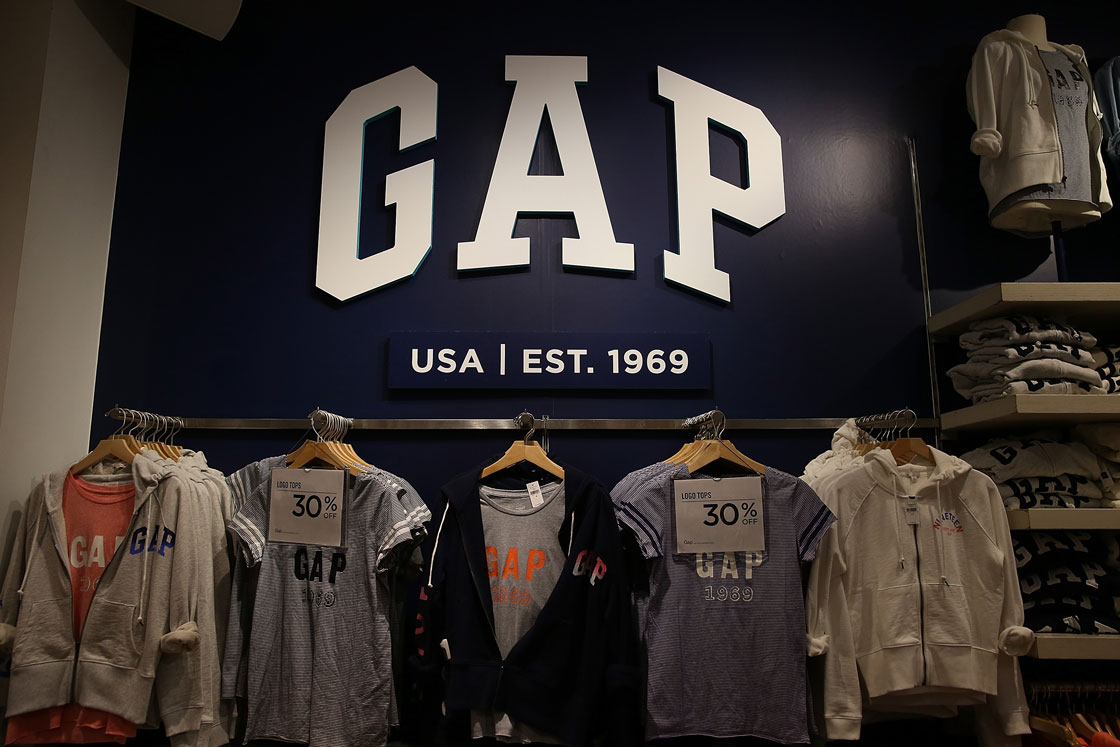Remember when people you know used to shop at the Gap? It wasn’t that long ago, really. But over the last few years, foot traffic to stores has steadily come under pressure at the one-time go-to clothing retailer for millions of North American shoppers.

Gap’s clothing and designs have lost a step or two in the trendy department, according to retail experts. Relative “fast-fashion” newcomers meanwhile, such as Zara, H&M and Forever 21 have been more than happy to pick up the slack.
The Gap’s stumbles have mirrored other established clothing retailers in Canada (like now-defunct Mexx among others). But the time may have arrived for a retail revival for the Gap, according to a new research report published this week by investment experts at BMO Capital Markets.
The retailer has a new leader in Art Peck, a company guy who took the helm last month and has been busy meeting with investor types like BMO to sell them on his game plan. “The meeting focused largely on the plan to put the flagship Gap brand back on track,” BMO analysts said in a research note.
Gearing up
Peck’s “top priority” is overhauling Gap’s clothing lineup, which has grown relatively frumpy compared to the shops it’s lined up against at the mall — shirts, for example, have become “too large and boxy,” the BMO analysts said.
“The focus is on correcting prior missteps in fit, color and silhouette, ultimately improving the level of consistency and winning back consumer mindshare,” said BMO analyst John Morris.
It’s too late for the summer lineup, which is already bought and set to roll out now, Morris said. But shoppers — including those who walk through the doors of the Gap’s 87 Canadian locations — should start to notice the revamped lineup by the fall and holidays, he said.

Get weekly money news
The in-store experience has to improve, as well, according to BMO Capital Markets. Here, higher pay for store staff, at least in the United States, will help.
MORE: Nearly 40% of Walmart U.S. workers get raise
The Gap has been one of several U.S. retailers to lift wages for U.S. workers in the past year, as the U.S. labour market tightens and employers want to attract better job applicants. Gap execs say U.S. stores experienced a 10 per cent bump in applications since the raise, allowing managers to be more selective in who they hire.
No word yet on whether they plan the same in Canada.
The simple blocking and tackling of retail, like the presentation of products, use of fixtures and in-store signage to entice shoppers is being closely examined by Peck, too, according to BMO.
Digital first
There’s also going to be a bigger commitment to a marketing shakeup, with the Gap leaning on digital advertising heavily to get the word out.
The BMO analyst said shoppers will see the new and improved Gap in place by next year.
“Even with the right product in place, it will ultimately take time to redefine the brand in the mind of consumers and win back mindshare,” Morris said.
“We expect this process to be gradual, with a complete representation of the new team’s vision likely not hitting stores until spring 2016.”
WATCH: New numbers from StatsCan on Canadian retail sales shows consumers spent way less over Christmas – the largest decline since 2010. As Reid Fiest reports, the sales slump hit every province.






Comments
Want to discuss? Please read our Commenting Policy first.